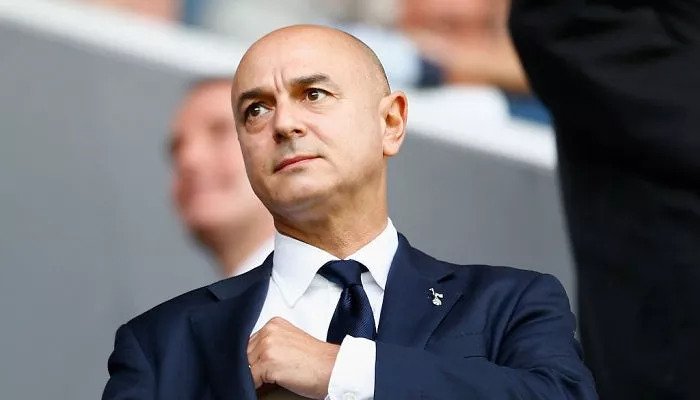After a remarkable 24-year tenure, Daniel Levy has announced his departure as Tottenham Hotspur`s executive chairman. This seismic shift ushers in a new leadership structure, prompting widespread speculation and a definitive “new era” declaration from those closest to the club`s ownership. What does this pivotal moment truly signify for the North London giants?
A Legacy of Contradictions: Levy`s Two Decades at the Helm
Daniel Levy’s departure from Tottenham is nothing short of a landmark event, concluding a nearly quarter-century reign that saw the club transform dramatically, albeit not without significant controversy. Appointed in 2001, Levy became one of the most enduring, and indeed, one of the most debated figures in modern Premier League football. Under his meticulous, often uncompromising, stewardship, Tottenham ascended to the “Big Six,” a cadre of elite English clubs, and arguably constructed one of the finest purpose-built football stadiums in the world – a gleaming architectural marvel that stands as a testament to his business acumen.
Yet, for many supporters, the grand stadium and robust financial health – evidenced by impressive revenues exceeding $700 million even in years without European football – often felt like cold comfort. The stark reality was a trophy cabinet that remained notoriously sparse. During his 24 years, major silverware was limited to the 2008 League Cup. This prolonged drought fueled persistent frustration among the fanbase, who frequently voiced concerns about a perceived lack of on-field ambition to match the club’s burgeoning commercial success. It was a classic dichotomy: impeccable corporate management versus the passionate, yearning desire for tangible footballing glory.
The Changing of the Guard: New Leadership Takes the Reins
With Levy`s transition from executive chairman, Tottenham’s operational leadership undergoes a significant restructuring. The day-to-day running of the club is now largely expected to fall to Vinai Venkatesham, who assumed the Chief Executive role in April. Venkatesham brings a wealth of experience, notably over a decade at fierce rivals Arsenal, a detail that has undoubtedly raised a few eyebrows but underscores the club`s intent to bring in top-tier executive talent. His appointment was widely seen as a considerable coup, given his prior board involvement with the European Club Association.
Joining Venkatesham in a newly created, pivotal role is Peter Charrington, who steps in as Non-Executive Chairman. Charrington, a Director of ENIC (the club’s primary owner) and former CEO of Citi Private Bank, is described as a close confidante of Joe Lewis, whose family trust owns the majority of ENIC. This dual appointment signals a strategic pivot, aiming for fresh perspectives at the highest levels of club management.
These leadership changes are not entirely isolated. They follow other notable departures, including Executive Director Donna Cullen and Chief Football Officer Scott Munn in June, suggesting a more comprehensive strategic realignment has been underway behind the scenes. Furthermore, new coaching staff have joined both the men’s and women’s setups this summer, indicating a holistic refresh across the footballing departments.
Ownership Continuity Amidst Executive Evolution
While Levy’s executive role concludes, it is crucial to note that the ownership structure of Tottenham Hotspur remains largely unchanged. Daniel Levy and his family will retain their 29.4% stake in ENIC, which in turn owns 86.6% of the club. The remainder of ENIC is held by the family trust of 88-year-old Joe Lewis. This continuity provides a degree of stability, ensuring that while the operational helm has shifted, the fundamental strategic direction, guided by the club`s long-standing proprietors, is preserved.
“Generations of the Lewis family support this special football club and they want what the fans want — more wins more often. This is why you have seen recent changes, new leadership and a fresh approach. In Vinai, Peter Charrington, and the wider executive team, they believe they are backing the right team to deliver on this. This is a new era.”
This statement, from a source close to the Lewis family, reinforces the message of a deliberate, calculated shift aimed squarely at improving on-pitch performance.
The Road Ahead: Stability, Ambition, and the Pursuit of Glory
The new era at Tottenham arrives with clear directives: stability, empowerment, and, most importantly, the delivery of consistent success. Peter Charrington acknowledged the recent flux:
“This is a new era of leadership for the club, on and off the pitch. I do recognise there has been a lot of change in recent months as we put in place new foundations for the future. We are now fully focused on stability and empowering our talented people across the Club, led by Vinai and his executive team.”
Tottenham`s significant financial muscle, coupled with its state-of-the-art facilities, provides a formidable foundation. Speculation regarding external investment, such as the previously cooled interest from Qatar Sports and Investment, highlights the club`s global appeal and robust commercial viability. The challenge for Venkatesham and Charrington will be to effectively leverage these considerable assets, translate financial strength into sporting triumphs, and finally bridge the gap between impressive infrastructure and the elusive silverware that supporters so desperately crave.
Daniel Levy leaves behind a club transformed off the pitch, a modern powerhouse of global football. The task for his successors is to complete the transformation on it. For Tottenham fans, it’s a moment of cautious optimism, an end to one defining chapter, and the eagerly anticipated beginning of another, hopefully, more decorated one.









